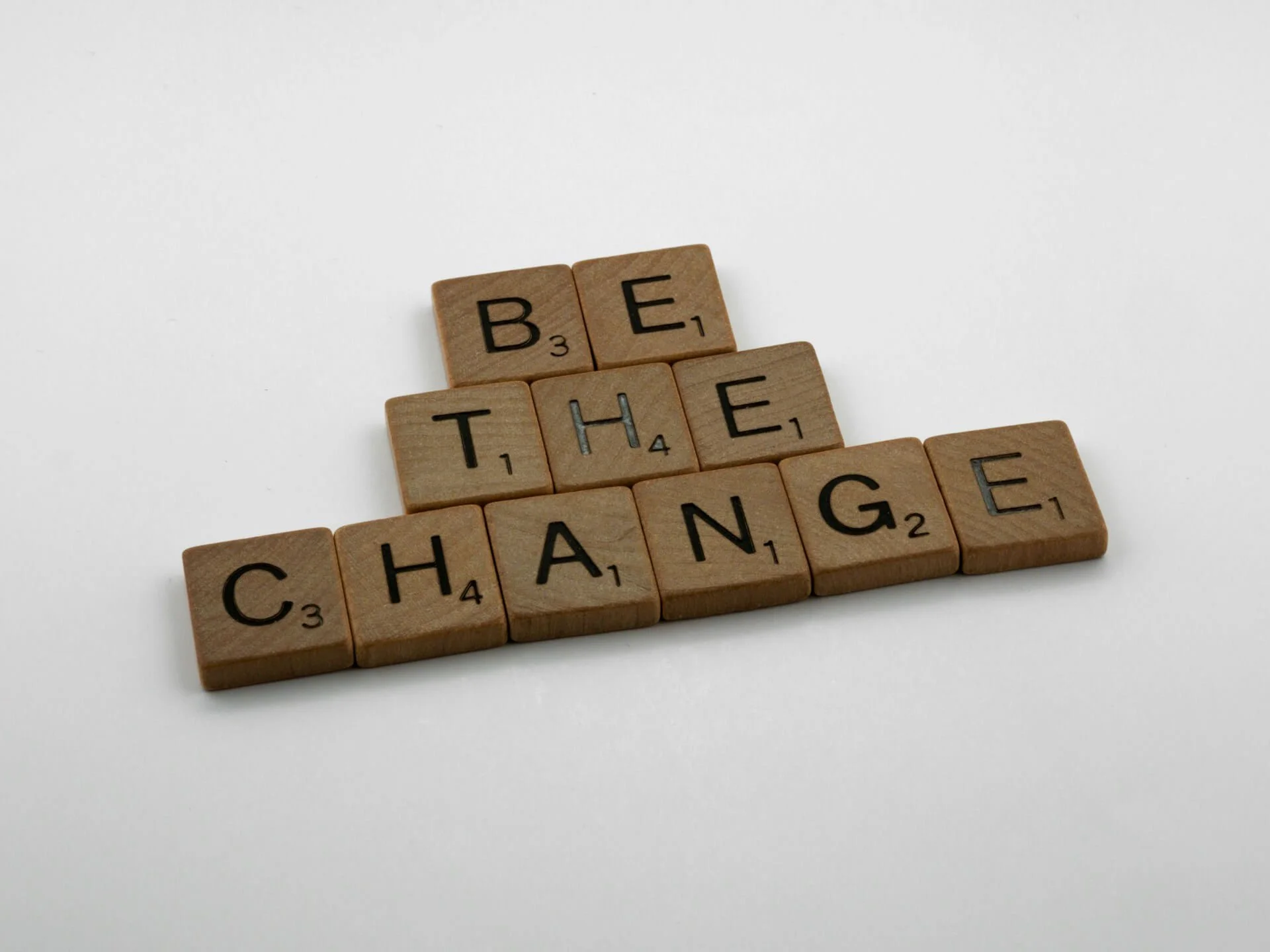Blog
The Benefits of Strength Training: for Every Body
How to start strength training the right way
If you’re new to lifting, start with the basics. Here are five simple movements that form the foundation of most programmes:
Squat - strengthens legs and glutes
Deadlift - builds posterior chain and posture
Push-up - develops chest, shoulders and arms
Row - strengthens back and posture muscles
Plank - builds core stability and balance
Technique always comes first, then I gradually increase resistance, intensity and complexity.
How to Stay Fit Through Winter
Change your timing - If dark evenings put you off, try training first thing in the morning or during lunch breaks. Get it done before the day takes over.
Adjust your goals - Winter doesn’t have to be about smashing PBs. Focus on maintenance or small wins - consistency beats intensity right now.
Train indoors - If outdoor workouts are less appealing, swap for indoor sessions. Bodyweight circuits, resistance bands or gym-based PT sessions keep you warm and on track.
Layer up - For those who enjoy the outdoors, invest in good cold-weather gear. Once you’re moving, you’ll warm up fast.
Prioritise recovery - Winter can increase stiffness and fatigue. Stretch, sleep well and hydrate - your body will thank you.
Can Lifting Weights Help With Migraine, Fatigue & Low Mood?
Can Lifting Weights Help With Migraine, Fatigue & Low Mood?
Short answer: yes - done right, strength training can be a powerful ally for people with migraine, and it’s one of the most reliable ways to lift energy and mood.
Creatine: More Than Just a Gym Supplement
When most people hear the word creatine, they think of bodybuilders and heavy gym sessions. But creatine isn’t some exotic powder - it’s a naturally occurring compound that your body already produces every day. And research now shows it’s not only valuable for athletic performance but also for long-term health, wellbeing, and even brain function.
Micro-Dosing Multivitamins: Do Small Doses Make a Big Difference?
Supplements are a hot topic in the fitness world, and multivitamins often sit at the centre of the debate. Recently, the idea of micro-dosing multivitamins - taking small amounts more frequently rather than one large daily pill - has been getting attention. But what is it, how does it work, and is there real science behind it?
Caffeine & Exercise: Does It Really Help?
For many of us, the day doesn’t start until we’ve had that first cup of coffee. But beyond the morning ritual, caffeine is one of the most researched and widely used performance enhancers in sport and fitness. The question is - does it actually help, and if so, how?
ATP & ADP: Your Body’s Energy Currency Explained
When you exercise, lift a weight, or even just blink, your body needs energy. But instead of cash or credit cards, your muscles run on their own “currency”: ATP
Why Vitamin A Matters More Than You Think
Vitamin A plays a vital role in immunity, vision, and skin health – all of which impact how you perform in and out of the gym. Don’t overlook it. Prioritise a balanced diet with both animal and plant sources, and consider your lifestyle demands when thinking about your nutrient intake.
Finding Your Fit: The Real Benefits (and Misconceptions) of Popular Workout Styles
The truth: The best workout is the one you’ll stick to. Every method has benefits – but your age, goals, body, lifestyle, and even your personality all matter. Want to lose fat, reduce joint pain, or feel confident in your body again? It might take a blend of two or three of these styles. And that’s exactly what we do at Griffin Fit – create personalised, sustainable programmes that fit your life, not the other way around.
Why Sports Massage Works: The Science Behind the Relief
What Is Sports Massage, Really?
Unlike a spa-style relaxation massage, sports massage is a targeted, therapeutic treatment. It uses techniques like deep tissue release, trigger point therapy, friction, and stretching to address specific muscle groups, often in relation to training load, posture, or injury.
It’s not just for athletes - it’s for anyone dealing with tight muscles, repetitive strain, postural imbalances, or just general aches and stiffness.
"What If I Can't Do It?" - Overcoming the Fear of Trying New Exercise
How to Overcome the Fear of Starting Something New
You don’t have to wait for the fear to disappear. You just have to learn how to move forward with it.
Here’s how:
✅ Name the fear.
Be specific. Are you afraid of failure, looking silly, or getting injured? Naming it takes away its power.
✅ Flip the “what ifs.”
Instead of “What if I can’t do it?” try “What if this changes my life?”
What if you feel stronger, sleep better, reduce stress, and gain confidence?
✅ Take one small step.
Don’t aim for perfection. Aim for progress. One class. One walk. One session. The first step is the hardest - and the most powerful.
✅ Choose the right environment.
Supportive, judgment-free spaces like Griffin Fit are key. You don’t need a six-pack or perfect form. You just need to show up.
✅ Work with a coach who listens.
You’re not just a number. We take the time to understand your story, your needs, and your pace. Our job is to make your journey enjoyable, not stressful.
✅ Visualise success.
Close your eyes and imagine yourself six months from now: fitter, stronger, more confident. Let that image pull you forward.
How Stress Sabotages Weight Loss - and What You Can Do About It
Top 10 Ways to Reduce Stress (And Support Healthy Weight Loss)
Here are 10 tried-and-tested strategies we use at Griffin Fit, backed by science and real-world results:
🧘♀️ Breathe deeply – Practice box breathing or diaphragmatic breathing for 5 minutes a day.
🌳 Get outside – Natural light and greenery lower cortisol and improve mood.
🏃 Exercise smart – Prioritise weight training and moderate cardio; avoid overtraining.
🍽️ Eat mindfully – Sit down, chew slowly, and avoid screens while eating.
😴 Sleep 7–9 hours – Protect your sleep like it’s a meeting with your boss.
📵 Limit screen time – Especially in the hour before bed. Blue light disrupts melatonin.
🧂 Stay hydrated – Even mild dehydration can elevate cortisol.
✍️ Journal or reflect – Writing down your worries can reduce their mental weight.
💬 Talk it out – Share your stress with someone you trust, or work with a coach or therapist.
🎶 Laugh, dance, sing – Activities that release dopamine and endorphins are more powerful than we give them credit for.
Achieving a healthy balance
I’ve come to understand more in the last few years just how important balance is when it comes to health and happiness – which, in turn, feeds into our overall wellbeing.
If we can maintain consistency with minor tweaks along the way, we’ll usually be in a good place to get back on track if we wobble.
There will always be a balance between health and happiness, and when maintained well, they feed off each other.
Injury Doesn’t Mean Inactivity: How to Adapt and Keep Training Through Setbacks
At Griffin Fit, I often remind my clients that fitness is not a straight line - it's a journey with twists, turns, and the occasional pothole. One of the most frustrating obstacles on that road is injury. Whether it’s a sprained ankle, shoulder strain, or a niggling back issue, an injury can feel like a brick wall in your training program. But here’s the truth: injury doesn’t mean giving up. It means adapting.
The Importance of Protein in the Diet as We Age: A Comprehensive Guide for Health and Strength
As we get older, maintaining a healthy and balanced diet becomes more crucial than ever. Among the key nutrients, protein is essential for preserving muscle mass, supporting bone health, aiding weight management, and ensuring overall well-being. If you’re over 35, particularly if you incorporate strength training into your routine, understanding how much protein you need and where to get it is critical.
Mastering Progressive Overload: The Key to Building Strength and Athletic Performance
In this blog, we’ll break down the science behind progressive overload, explain how it applies to strength training and athletic performance, and give you practical examples to implement in your own training.
Aerobic vs. Anaerobic Fitness: What’s the Difference and Why It Matters
Understanding the difference between aerobic and anaerobic exercise can help you build a well-rounded fitness routine and support your overall health and well-being. Both types of exercise offer unique benefits, and each plays a specific role in supporting real-world lifestyles, especially for those with busy schedules. Let’s break down what each involves, examples of exercises, and the benefits they offer.
Why Does Constant Dieting Make You Gain Weight?
Stuck in the endless cycle of dieting, only to watch the weight creep back on?
It's not just you—many people face the same frustrating reality. What if the secret to effective, long-term fat loss isn't about dieting harder but smarter?
Get ready to learn why taking strategic breaks could be the cheat code you've been missing.




















